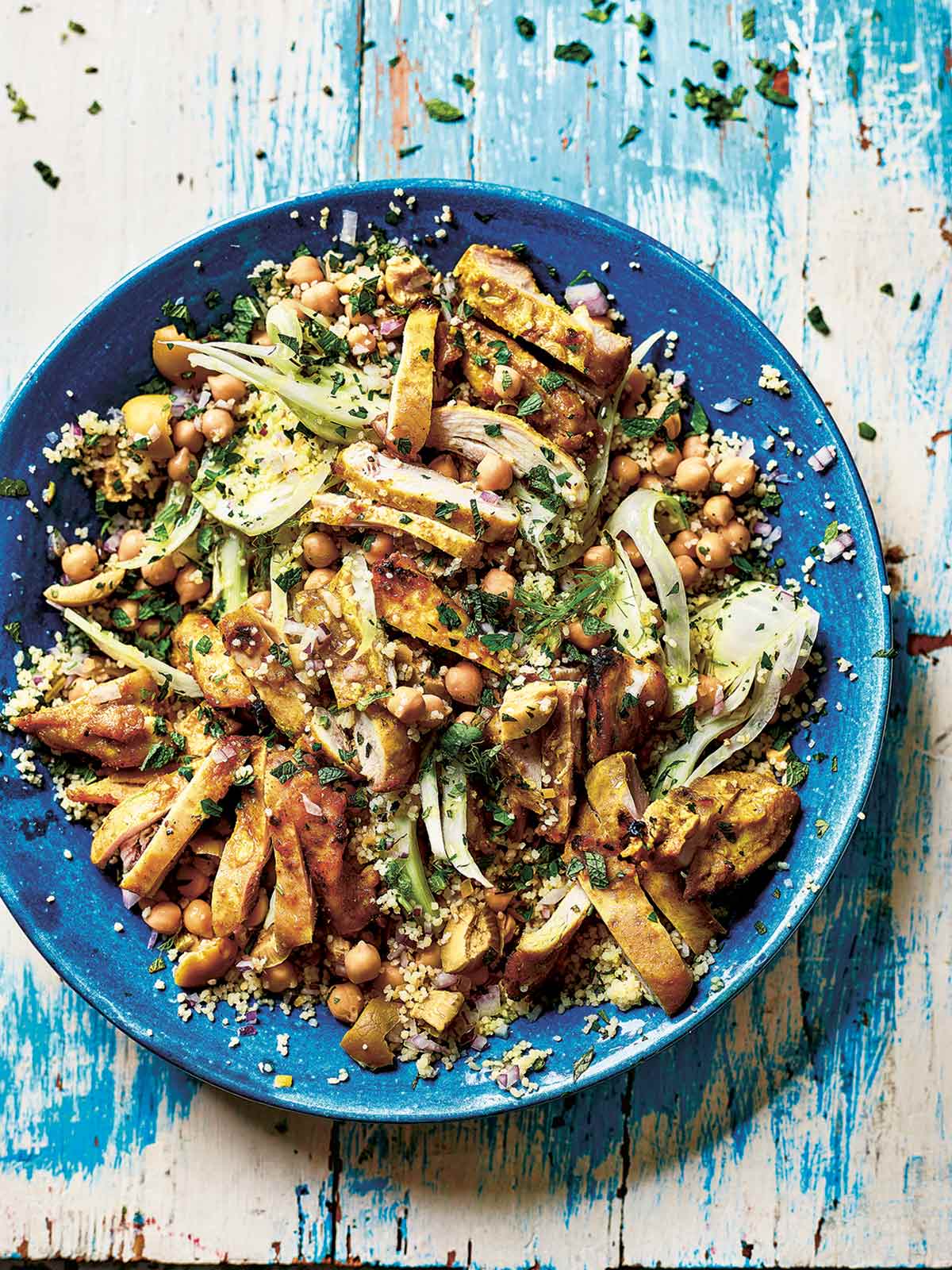
This stellar chicken and preserved lemon salad reimagines traditional Moroccan tagine by packing all the zest and zing of the usual citrus, green olives, fennel, chickpeas, couscous, and warmly spiced chicken thighs into a slightly less heavy yet no less compelling salad.–Jenny Howard
Chicken and Preserved Lemon Salad FAQs
If you already have a jar, you can just keep adding more slices of lemon to the bottom of the jar and covering it with more juice and salt. Personally, we love Paula Wolfert’s preserved lemon recipe to get a jar started. Just remember, unless you buy preserved lemons, you’ll need a little time beforehand, say…30 days, before they’ll be ready to use. Luckily, Wolfert also includes a pressure cooker version if you just can’t wait.
Certainly, you can pull out a knife and get slicing. However, if you’re handy with a mandolin you can follow tester Irene Seales’ lead for perfectly uniform fennel strips. Her method for safely shaving fennel is to trim the bottom, then use the stalk to safely hold the bulb as you run it across a mandoline. An easy and safer way to use, as David calls it, the French Finger Guillotine.
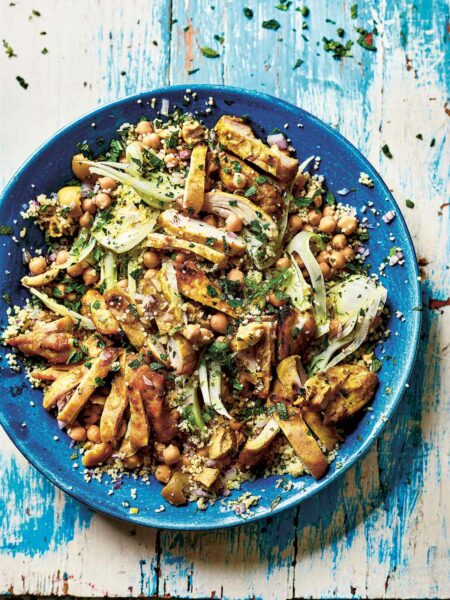
Chicken and Preserved Lemon Salad
Ingredients
For the chicken
- 2 cloves garlic
- Sea salt
- 1/2 teaspoon ground cumin
- 1/2 teaspoon ground coriander
- 1/4 teaspoon ground ginger
- 1/4 teaspoon ground turmeric
- 2 tablespoons olive oil
- 1 tablespoon fresh lemon juice
- 1 1/4 pounds boneless skinless chicken thighs
For the salad
- 1 cup uncooked couscous
- 1/2 red onion, finely chopped
- 4 tablespoon lemon juice, from 2 to 3 lemons, plus more to taste
- 1 medium fennel bulb, trimmed, cored, and very thinly sliced, feathery fronds chopped and reserved for garnish, if desired
- 2 1/2 tablespoons olive oil
- One (14-oz) can chickpeas, drained and rinsed
- 1 store bought or homemade preserved lemon, pith discarded and zest finely chopped
- 3/4 cup pitted green olives, coarsely chopped
- Small handful finely chopped mint, or less to taste
- Generous handful finely chopped cilantro or parsley, or less to taste, plus a small handful whole leaves for garnish, if desired
Instructions
Marinate the chicken
- Using the flat side of a large knife or a mortar and pestle, mash the garlic into a paste with a pinch of salt. In a large bowl, combine the garlic paste, cumin, coriander, ginger, turmeric, oil, and lemon juice and mix well. Add the chicken thighs and rub the spice paste all over, completely coating them. Cover and refrigerate for at least 1 hour and up to 24 hours.
Make the salad
- Preheat the broiler on high. Arrange the marinated chicken thighs on a foil-lined broiler pan.
- While the broiler preheats, bring a small pan of water to a boil. Dump the couscous in a large bowl and add enough boiling water to cover it by about 1/4 inch (6 mm). Cover the bowl with plastic wrap and let sit until the water is absorbed, about 10 minutes.
- In another small bowl, toss the red onion with 1 tablespoon lemon juice and a small pinch of salt. Let sit for a few minutes to mellow the sharpness of the raw onion. Then add the fennel and 1/2 tablespoon oil and toss.
- Gently fluff the couscous with a fork. Add the onion and fennel mixture, chickpeas, preserved lemon, olives, chopped mint, chopped cilantro or parsley, 2 tablespoons lemon juice, and the remaining 2 tablespoons oil and toss well. Taste, adding more lemon juice or salt, if desired.
- Broil the chicken thighs until cooked through and golden brown, 7 to 8 minutes per side. When cool enough to handle, slice the chicken thighs into thin strips. Sprinkle with 1 tablespoon lemon juice and a pinch of salt.
- To serve, if desired, turn the salad onto a large platter. Arrange the chicken on top and spoon over any juices from the broiler pan. Garnish with whole cilantro or parsley leaves and fennel fronds, if using. Serve immediately.
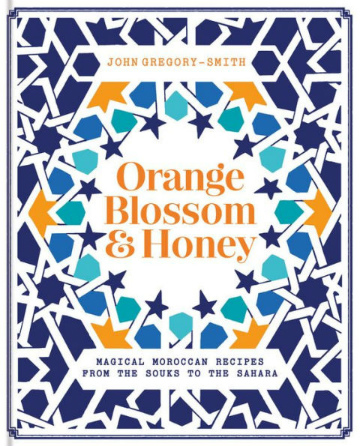
Nutrition
Nutrition information is automatically calculated, so should only be used as an approximation.
Recipe Testers’ Reviews
This chicken and preserved lemon salad is so good! It has those beautiful Moroccan flavors you expect from a tagine but a bit different, a little lighter, and it can be quickly put together.
A couple of notes. The longer you can marinate the chicken thighs, the better. Next time, I’d actually cut the chicken into strips (like chicken tenders) to help the marinade penetrate plus then you could easily cook them on the stovetop. I used parsley instead of cilantro (unfortunately, I am one of those people who find cilantro to taste like soap). And I used about half the amount of mint as parsley.
This was a new-to-me method of cooking couscous and it worked perfectly! I used boiling water and it sat for 5 minutes. At that point, the water had been absorbed.
Assuming you have—or have access to—preserved lemons, this chicken and preserved lemon salad comes together quickly and packs a lot of flavor. The spice blend and abundance of lemon from both the freshly squeezed lemons and preserved lemon add a nice note. The herbs used for finishing the couscous salad add a delicious freshness.
This chicken and preserved lemon salad brought together some of my favorite flavors together with a simple form that could be put together easily on that day or, with a little planning, started the night before. (After fresh Meyer lemons, a jar of preserved lemons is just about my favorite thing to keep on hand. I always have a batch ready to eat, and when I get close to the end, I start another batch.)
The salad was pronounced a winner by both of us. The spicy marinade gives a nice flavor and finish to the skinless chicken thighs and I can imagine they’d just as nicely cook up on a grill as under the broiler. The marinade paste takes 15 to 20 minutes the night before and then can be stashed in the fridge. My chicken marinated for 23 hours.
On the day, you can cook the couscous first, letting it sit covered while you prep the rest of the salad. While you can do it exactly as written (plan on about 1 1/4 cups boiling water), you also could bring that to a boil in a small saucepan and stir in the couscous, and then cover and get the same result.
The recipe is designed to be easy, so while you can use canned chickpeas, it’ll work just as nicely with freshly cooked ones if you like (1 1/2 cups rinsed and drained is the equivalent of a 400g can). If you use home-cooked chickpeas, you might want to adjust the salt level or add a bit more preserved lemon to punch up a little brighter level of flavor in the salad. My method for safely shaving fennel is to trim the bottom, then use the stalk to safely hold the bulb as you run it across a mandoline.
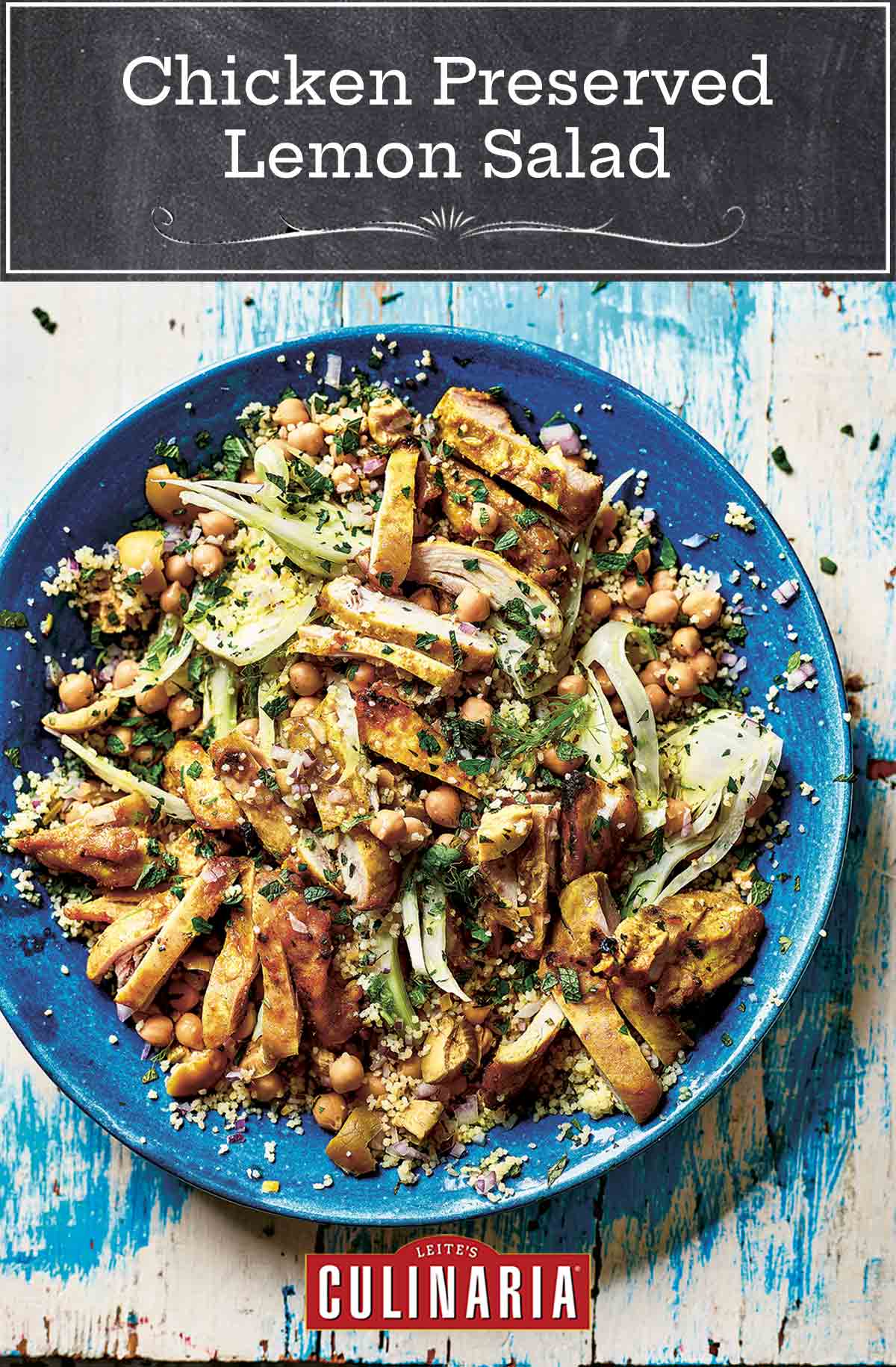


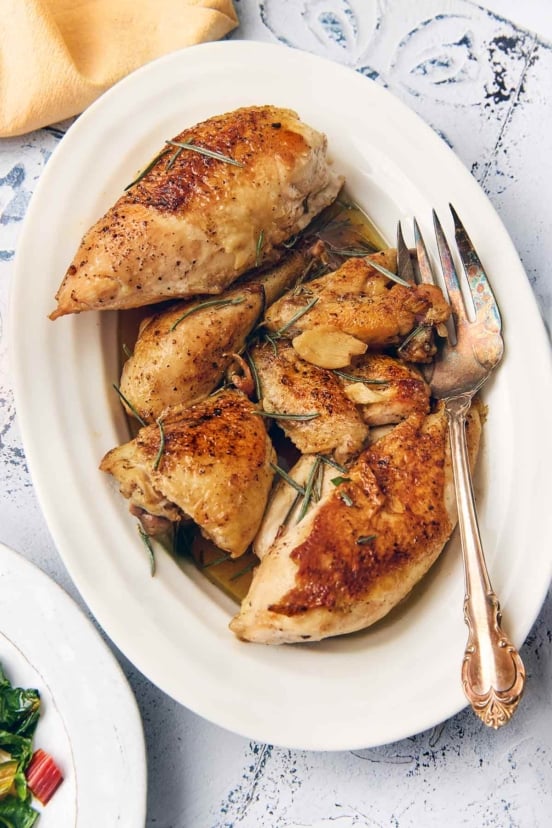
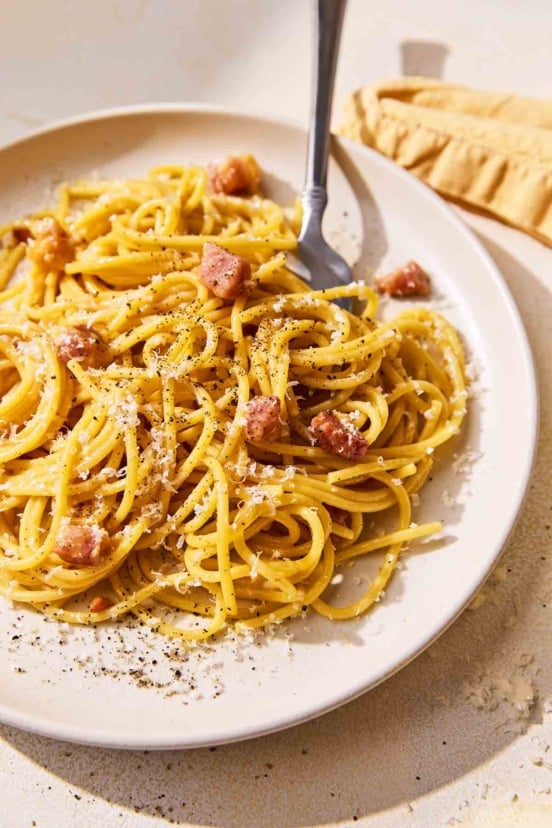
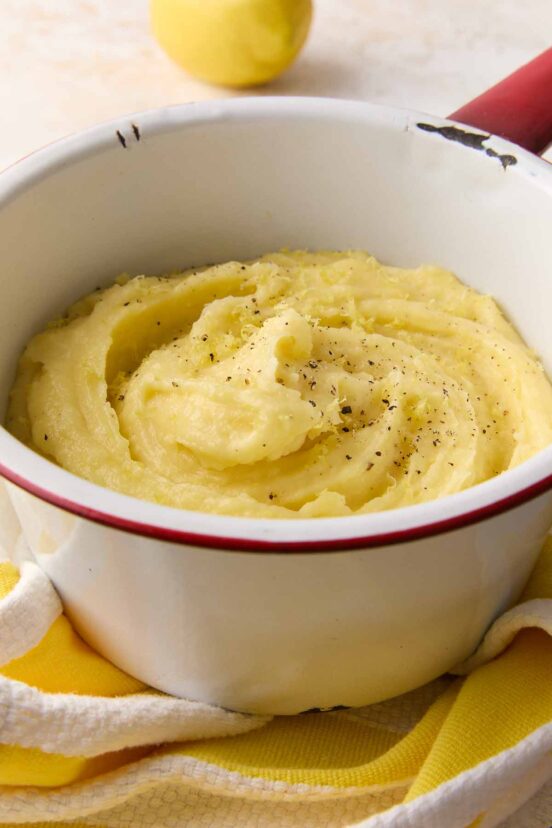









This is cheating. This is not an “adapted” recipe. All you have done is change the words around. I have this cookbook and it is a great recipe but give credit where it is due! If you have won a James Beard award for your writing I would expect better than this.
Melanie, thanks for writing. I agree! John’s recipe is great, which is why I wanted to publicize and share it.
Since you’ve made assumptions, let me clear things up.
Publishers send us cookbooks, hoping we’ll feature recipes from them as a way of publicizing their authors’ work. When something captures our attention, we request and receive written permission from the publishers for every single recipe we post from a cookbook. We explain to publishers that we use the term “adapted from” so readers will know that there may be changes in what we post–even if it’s just “chang[ing] the words around.” We almost always rewrite the directions based on what our testers experience in their kitchens. Other times, we change the amounts of the ingredients or the ingredients themselves. We ALWAYS credit the author at the top as well as the bottom of the recipe. We ALWAYS sell their cookbooks. The author ALWAYS retains the copyright, as you can see at the bottom.
Publishers prefer that we use the words “adapted from” because too many online sites lift recipes word for word, don’t ask permission, don’t credit the author, don’t feature the cookbook, and try to pass it off as their own. It’s happened countless times to me with recipes from my cookbook, and it is disheartening. I’m always grateful when sites mention me and link off to sell my book.
In the 25 years of having this site, there have been only two times authors have had an issue with our methods. In fact, most authors, such as Dorie Greenspan, Rose Levy Beranbaum, Jamie Oliver, Patti Jinich, and Nick Evans, for example, appreciate that we credit them.
I hope this clears things up. But rather than having accused me, it would have been so much kinder to have simply asked me. Have a great day.